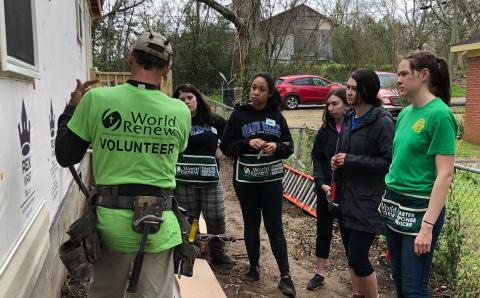Twenty-five years have passed, and still I think about a small boy I never met. I wonder how he is doing. I wonder if he has lived up to his father’s long-ago dream for his life. I wonder if as he grew up he gained the ability to utter a single word.
How I learned of this child seems a bit incongruous now. It was at a youth group event on a Friday night in a church packed with teenagers bused in from across the city. A team made a presentation, and then one of the team members, a young father, began to speak. I think he went off script. He wept. With anguish pouring from his soul, he began to talk about his child.
The child was in mid- to late toddlerhood and had not yet learned any words. While the possibility that a child might live with communication disabilities would be concerning for most parents, this father was especially devastated by the situation because it brought him to a cliff’s-edge juxtaposition of faith and present reality.
You see, when his son was born, the father believed God told him the child would one day grow up to be a preacher or an evangelist. His son not being able to speak seemed to throw all that into question.
“How,” the father anxiously mused, “could someone who can’t speak ever preach the word of God?” Tears flowed down his cheeks as he shared his efforts to hold on to faith even in the face of the unknown and seemingly impossible.
If I could, I would go back in time to that long-ago night and speak reassurance into the heart of the brokenhearted young father. I’d tell him that speech is not necessary to proclaim the word of God. That disability does not have to be a barrier to evangelism. That evangelism doesn’t always happen in formal ways, such as with a sermon. And that even if the little boy never learned to verbally communicate, if God had something to say through him, it would be said.
I would tell him this without using speech myself, instead using an assistive communication device I began to use eight years ago. This machine turns words I type into mechanically spoken words.
In a world that values typical abilities, God values us all as diverse individuals, regardless of our abilities and capacities. While some may think you have to communicate, move, or think in the “normal” way, God sees a bigger picture.
God’s grace speaks in us and through us—all of us. That doesn’t include only people who can speak or communicate in other language-based ways, such as through a communication device. I have been privileged to encounter people who because of very severe disabilities had little formal communication abilities. But these people too had much to say and much to teach those around them.
I think of a man I worked with years ago in a group home. His communication consisted of blinking yes or no to a question, although he was inconsistent in this ability. Yet in the calmness of his spirit, in his joy, and in the love emanating from him, Christ spoke through him.
It reminds me of 2 Corinthians 12:9: “My grace is sufficient for you, for my power is made perfect in weakness.”
So though I sometimes wonder about that young boy and whether he did grow up to be able to speak, one thing I do not wonder about is if he grew up to share the word of God. If God truly planned this for the boy’s life, then whether or not he lives with disabilities, it will come to fruition.
About the Author
Jenna C. Hoff is a freelance writer and editor in Edmonton, Alta. She is a member of Fellowship Church of Edmonton.






